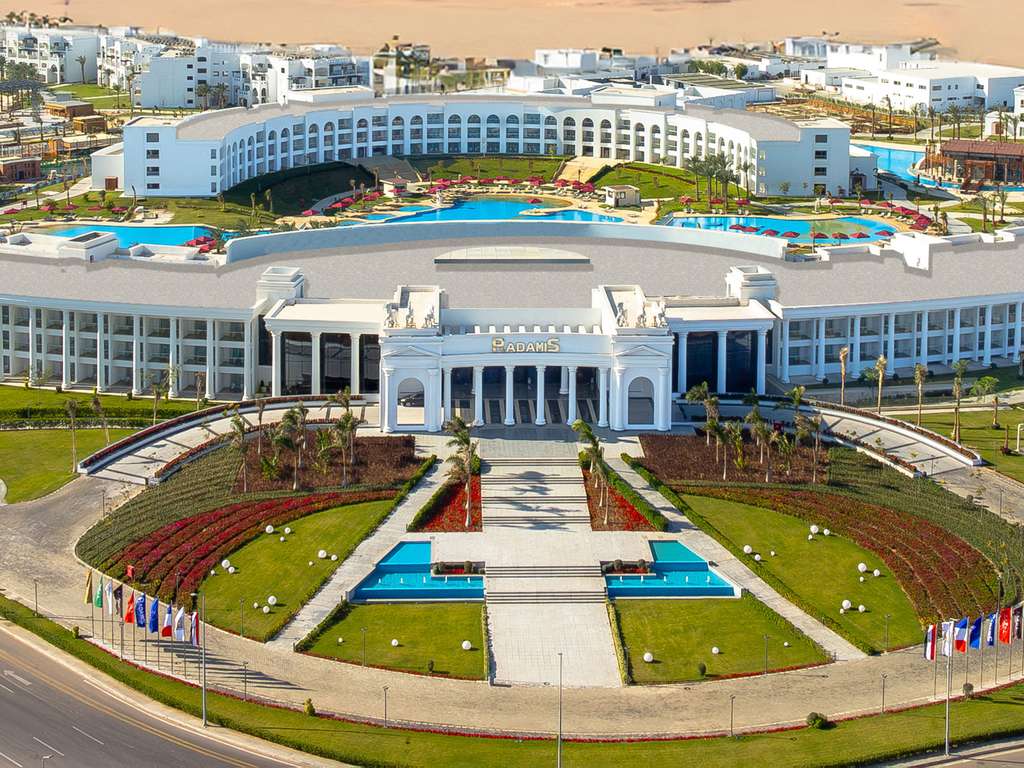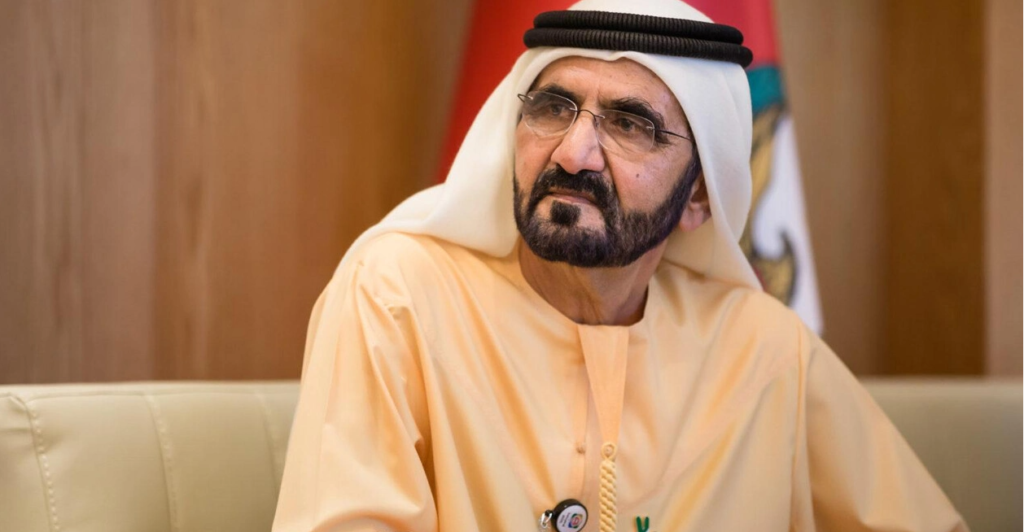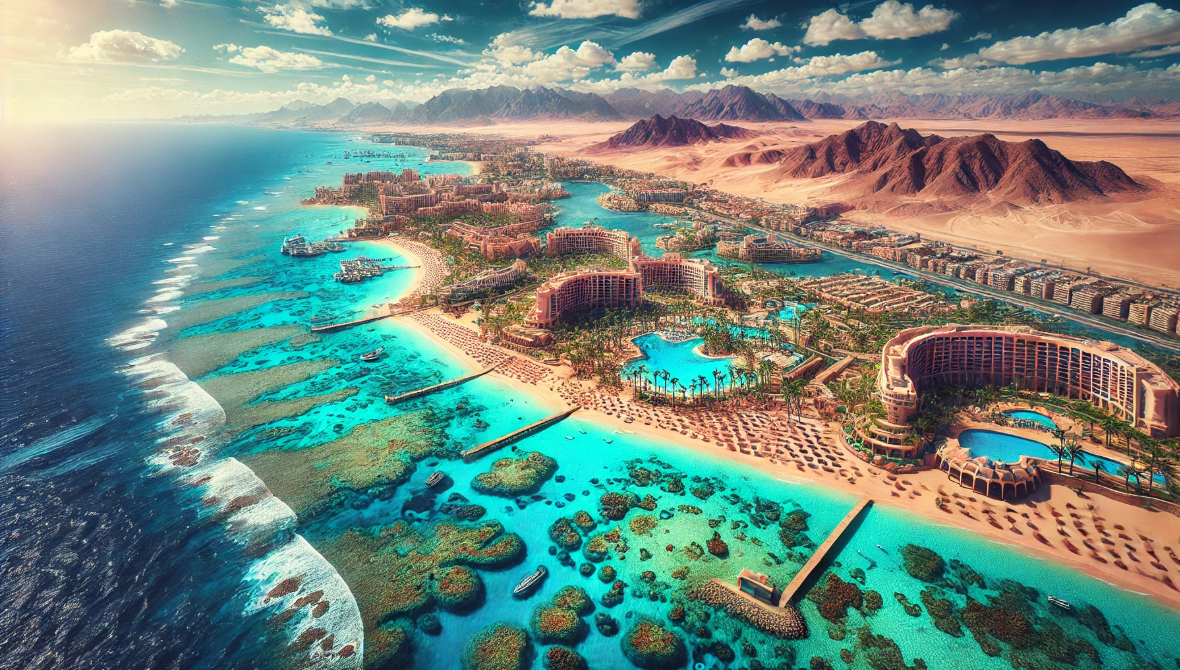At a Glance
- Egypt’s tourism sector, contributing 11% to GDP, thrives on iconic landmarks like the Pyramids, attracting global hospitality investments and boosting employment in local communities.
- Real estate projects, including the $58 billion New Administrative Capital, blend history with modern infrastructure, addressing urban challenges and drawing global investor interest.
- Technology and entrepreneurship drive Egypt’s diversification, with startups like Anghami and global giants like Uber benefiting from a tech-savvy population and innovation-focused policies.
Egypt, an African economic powerhouse with a GDP of $380.04 billion (IMF, 2024), exemplifies resilience, progress, and cultural wealth.
Boasting a strategic location, a rich historical legacy, and an evolving business environment, Egypt continues to attract global investments across diverse sectors.
Over the past year, the Egyptian Exchange (EGX) has outperformed many African and Middle Eastern exchanges, with its market capitalization expanding by 61.71 percent, from EGP1.4 trillion ($27.56 billion) in January 2024 to EGP2.26 trillion ($44 billion) at the time of writing. The benchmark EGX30 index also climbed from 17,512 to 30,795.09.
Tourism: Egypt’s economic cornerstone
Tourism contributes about 11 percent to Egypt’s GDP (2020 estimates), underscoring its role as a vital economic driver.
Iconic landmarks like the Pyramids of Giza, the Sphinx, and the Nile River make Egypt a global tourism magnet.
This cultural legacy has spurred investments from hospitality giants like Marriott International, Hilton, and Accor, resulting in luxury developments in Cairo, Sharm El Sheikh, and Luxor.

The sector’s growth is further bolstered by initiatives like the Grand Egyptian Museum, set to be the world’s largest archaeological museum.
Despite pandemic-related setbacks, Egypt’s tourism industry has demonstrated resilience, creating jobs and fueling local economies while welcoming millions of annual visitors.
Real estate: A modern renaissance
Egypt’s real estate sector blends historical inspiration with modern innovation, attracting global and local investors alike.
Emirati real estate development company, Emaar Properties majority-owned by Dubai ruler Mohammed bin Rashid Al Maktoum has invested over $2 billion in projects like Uptown Cairo, showcasing advanced urban planning and luxury amenities.

Domestic developers are also shaping the market through affordable housing and smart city projects, such as the $58 billion New Administrative Capital.
These developments not only generate revenue but also address urban challenges, create jobs, and enhance infrastructure, solidifying real estate as a cornerstone of Egypt’s economic transformation.
Technology and entrepreneurship: Egypt’s new frontier
Technology and entrepreneurship are becoming pillars of Egypt’s economic diversification. Success stories like Anghami, which secured over $100 million in funding, and the expansion of Uber and Careem demonstrate the sector’s rapid growth. With a young, tech-savvy population, Egypt is poised to lead the digital economy in the region.
Visionary entrepreneurs like Naguib Sawiris with a wealth of $7.17 billion according to Bloomberg have driven Egypt’s tech evolution, fostering global partnerships and attracting venture capital.
Initiatives like Cairo’s Technology Park highlight Egypt’s commitment to innovation, creating youth employment and advancing toward a knowledge-driven economy.
Influential investors: shaping Egypt’s future
Visionary business leaders such as Mohamed Mansour and Samih Sawiris have been instrumental in driving Egypt’s economic success.
Their investments span industries from automotive to luxury tourism, enhancing Egypt’s competitiveness and fostering global partnerships.
By supporting infrastructure and development projects, they solidify Egypt’s reputation as a prime destination for international investors.
A Dynamic fusion of heritage and progress
Egypt’s rich heritage is more than a testament to its past—it is a catalyst for its future.
From ancient wonders to cutting-edge smart cities, Egypt’s ability to merge tradition with innovation has positioned it as a leader in tourism, real estate, and technology.
With sustained foreign investment and an ambitious economic vision, Egypt is on a trajectory toward long-term growth, innovation, and global relevance.
Its journey exemplifies how cultural heritage, paired with strategic investments, can fuel a nation’s path to economic prosperity and global leadership.





